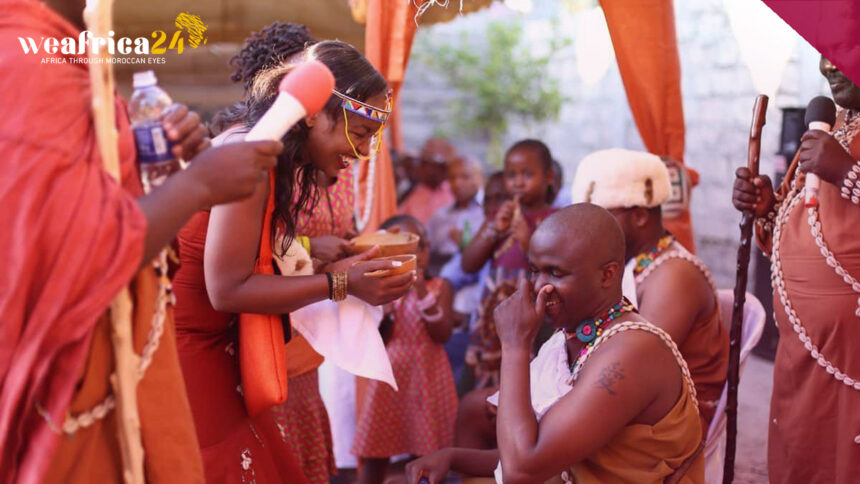Kenya, a country located in East Africa, is known for its diverse cultures and rich traditions. One of the most significant and celebrated events in Kenyan culture is the wedding. Weddings in Kenya are often colorful, vibrant, and steeped in local customs and traditions that vary across different ethnic communities in the country.
In Kenya, weddings are not only about the union of two individuals, but they also hold a deep cultural significance, symbolizing the coming together of families and communities. Let’s explore some of the common wedding traditions that are practiced in Kenya.
Pre-Wedding Customs
In Kenya, the wedding preparations usually start months or even years in advance. One of the first steps is the formal introduction of the couple to each other’s families. This event, known as “ruracio” in some communities, involves the exchange of gifts, negotiation of dowry (known as “bride price”), and the blessing of the union by the families. This ceremony is often accompanied by singing, dancing, and feasting, and serves as an important cultural ritual that sets the stage for the upcoming wedding.
Bridal Preparation
Kenyan brides often adorn themselves with traditional attire and jewelry during the wedding. This includes colorful garments made from local fabrics, such as “kanga” or “kitenge,” which are often intricately designed with bold patterns and bright colors. The brides also wear ornate jewelry, such as necklaces, bracelets, and earrings, often made from beads or precious metals, which hold cultural significance and are believed to bring good luck and blessings to the couple.
Wedding Ceremony
The wedding ceremony in Kenya typically takes place in a religious institution, such as a church, mosque, or temple, depending on the couple’s faith. The ceremony is often attended by family, friends, and community members, who come together to witness and bless the union. The couple may exchange vows, and rings, and participate in various rituals as per their cultural or religious traditions. Prayers, blessings, and songs are an integral part of the wedding ceremony, adding a spiritual dimension to the event.
Traditional Practices
Many Kenyan weddings incorporate traditional practices that vary depending on the ethnic community to which the couple belongs. For instance, in some communities, the bride may be required to undergo “nyumba ntobhu” or “kupamba,” a ceremonial process of adorning the bride with traditional makeup and accessories before the wedding ceremony. In other communities, the couple may participate in “singing wells” or “olngesherr,” a traditional singing and dancing ritual performed by the bride’s family to express joy and celebrate the union.
Feasting and Celebrations
Food plays a significant role in Kenyan weddings, and feasting is a common tradition observed in most communities. Traditional Kenyan dishes, such as “nyama choma” (grilled meat), “ugali” (a staple maize dish), “sukuma wiki” (collard greens), and “chapati” (flatbread), are often served during the wedding reception. The feasting is accompanied by music, dancing, and merriment, as guests come together to celebrate the joyous occasion.
Post-Wedding Customs
After the wedding ceremony and reception, Kenyan couples may also participate in various post-wedding customs, which may vary depending on their cultural beliefs. For example, some communities may have a “send-off” ceremony, where the couple is bid farewell with prayers and blessings before they embark on their new life together. In other communities, the couple may spend time with their respective families before finally settling down as a married couple.
In conclusion, weddings in Kenya are much more than just a union of two individuals. They are an important reflection of the country’s diverse cultures and traditions.







